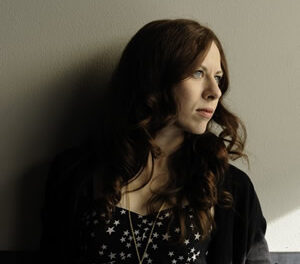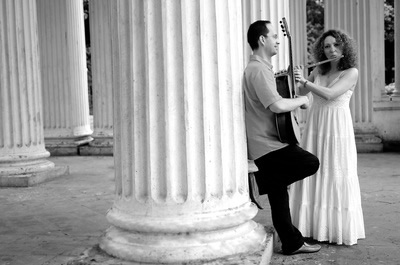Pastor Kojo Nantambu and others have called him a jazz griot as is most appropriate for Larry Reni Thomas who was a master storyteller and historian that passed June 30, 2023. His unflinching stands on the Black struggle in America, especially his home of Wilmington, North Carolina are legend. His highly informed and immersed embrace of jazz culture – the music along with the masters of its composition and performance – made us love it madly and he just as much. He challenged and dismissed the term “jazz” at every turn and preferred to call it America’s classical music or African American classical music. His support and presentation of it in so many ways and on so many stages demanded the standardized term. Our beloved, also departed Yusuf Salim, Durham-based jazz pianist and composer from Baltimore, Maryland who was also a community builder and mentor to many called him “Dr. Jazz.”
He opened and closed his Sunday evening jazz shows on WCOM-FM Chapel Hill-Carrboro with Eddie Jefferson, another jazz griot who served as poet/historian/chronicler/storyteller of the music. It was always “Waltz for a Rainy Bebop Evening” delivered in Jefferson’s characteristic and singular style of vocalese. Dr. Jazz would always post his playlists on Facebook under his full name the day of the broadcasts, which were streamed online. These playlists remain online on his Facebook page with the last being for April 9, 2023. He would carry you seemingly through an ABC’s of modern jazz history from Armstrong, Bechet, Basie, and Ellington and switch over from big band to bebop to hard bop, beyond to the now and back with Robert Glasper, Jazzmeia Horn, Betty Carter, Sarah Vaughn, Horace Silver, and Woody Shaw. He reserved space for his superheroes of this music – Charlie “Bird” Parker, Miles Davis, John Coltrane, and Dexter Gordon with poets Gil Scott Heron, the Last Poets, and Haki Madhubuti interspersed. Tenor saxophonist Dexter Gordon was a survivor of the ex-patriot experience in Europe and saw a renaissance through starring in the award-winning film “Round Midnight.” He seemed to cherish Gordon the most since he engaged him in performances, not only in New York, but also in Durham at the Hayti Heritage Center. He called Dexter Gordon “Big Red” and Gordon in turn called him “Slim.”
Many have known him primarily as a jazz announcer in Wilmington (WHQR-FM) and Durham (WDBS-FM and WNCU-FM). Others have known him in print as a journalist and reviewer in Downbeat, Jazz Line, The Spectator Magazine, The Urban Journal, The Carolina Times, The Daily Tarheel, The Wilmington Star News, The Wilmington Journal, Encore Magazine and CVNC. (See Thomas’ CVNC author page here.) But it is the many times announcing jazz on stage or hanging backstage at concerts nationally with jazz artists and his mother, Esther Malette Thomas, that we really know Brother Larry as I call him. His moms is still a big fan of her son and this music. He always dressed in some African fabric style, even if it was just a kente bowtie. He would stand majestic with that smile striking a pose with someone holding up one of his several books in self-promotion, which he had down to a science. Not only would we have seen Brother Larry snapping a picture with Kamasi Washington, Gregory Porter or Nnenna Freelon; and we would see him having a chat or late dinner with especially drummer Albert Heath and composer/big band leader/saxophonist Jimmy Heath. The Heath family is rooted in North Carolina, specifically Wilmington. A collation of 75 or more jazz musicians in North Carolina, this “rootedness” was a consistently celebrated and documented projection by Brother Larry online, in lectures, and through his book Carolina Shout! The Carolina Jazz Connection. His jazz scholarship, first introduced to us through his book The Lady Who Shot Lee Morgan, served as the foundation for the film “I Called Him Morgan.” He is featured in the film providing his brand of scholarly insight.
I was first introduced to Brother Larry when I moved here in 1996 while he was at WNCU-FM 90.7 by a friend he grew up with, percussionist Abasi Johnson, who headed “up south” with the reggae band Black Sheep which settled in my hometown of Washington, DC. Brother Larry and I became good friends since we shared a fellow scholarly love of the music. We’d catch each other at many a concert, many of those featuring the superb musicians coming out of the NCCU jazz studies program directed for years by Dr. Ira Wiggins, then Wiggins’ protégé Dr. Brian Horton, and now trombonist Robert Trowers. I have heart-felt memories of him appearing at my lecture/performances backed by a quartet called “Coltrane Poem,” a curated pairing of Coltrane compositions with poems written about him by great Black poets such as Sonia Sanchez, Amiri Baraka, Jayne Cortez and Larry Neal. The first performance held at the NC Museum of History featured the Ira Wiggins Quartet and the second held over 15 years later in Durham featured the Brian Horton Quartet. I also recall Triangle gatherings of a Black brotherhood of jazz listeners and collectors I and others started in the tradition of the decades old DC Listening Group who meet monthly just for the music and the fellowship, Brother Larry there steadfast in pushing Bird’s and Lee Morgan’s legacies. I remain informed and rooted in Brother Larry’s lesson to us stated as only he, our always cheery and tall jazz griot, could deliver:
“The history of so-called ‘jazz’ music is a study of how a group of talented musicians made something from nothing. They were able to make a living, buy homes, provide food and shelter for their families. Some of them were college graduates who sent their children to college. By the way, this music that is called ‘jazz’ is not ‘old people’s music’ or music of the past. It’s alive and swinging. It’s the music of the future. We are just waiting for you all to catch up! You dig?”












